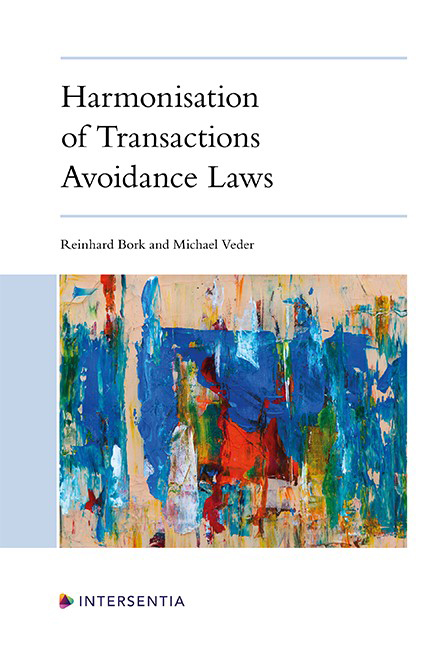Lithuania
Published online by Cambridge University Press: 26 May 2022
Summary
INTRODUCTION
The politic of insolvency/personal bankruptcy in the Republic of Lithuania consists of two main laws:
1. The Enterprise Insolvency Law of the Republic of Lithuania (hereinafter, the Enterprise Insolvency Law), which entered into force on 1 January 2020 (recent update went into force on 15 July 2021), and replaced the Enterprise Bankruptcy Law of the Republic of Lithuania, and the Law on Restructuring of Enterprises of the Republic of Lithuania. The Enterprise Insolvency Law regulates the process of restructuring and insolvency of legal entities, and as well the profession and supervision of Insolvency Practitioners.
2. Personal bankruptcy proceedings are regulated by the Republic of Lithuania Law on Personal Bankruptcy (hereinafter, the Personal Bankruptcy Law.
PART 1. DETAILS OF YOUR NATIONAL TRANSACTIONS AVOIDANCE LAW
I. SYSTEM
Question 1. Is your transactions avoidance law (for terminology cf. Introduction at C.) part of insolvency law or is it in parts or as a whole incorporated in other fields of law (e.g. general civil law, commercial law, company law)
Lithuanian transactions avoidance law is in parts incorporated in insolvency (personal bankruptcy) law and in other fields of law (e.g. general civil law, family law and company law).
Transactions indicated above shall be governed by the rules prescribed in the Civil Procedure Code of the Republic of Lithuania (hereinafter, the Civil Procedure Code) (litigation aspects).
Question 2. Are the rules on transactions avoidance law in your jurisdiction the same for entrepreneurs/legal entities and consumers/natural persons? If not, please explain the differences and take it into account when completing this questionnaire.
In Lithuania the rules on transactions avoidance law slightly differs for entrepreneurs/legal entities and consumers/natural persons. For example, Lithuanian laws do not regulate consumers/natural persons’ fraudulent bankruptcy, while the laws on entrepreneurs/legal entities insolvency proceedings provide the possibility of declaring insolvency proceedings as fraudulent. Also, in the Republic of Lithuania an individual enterprise has a legal personality i.e. is owned by a single natural person and is a legal person of unlimited civil liability; its assets are not separated from its owner’s asset; the owner is liable for the obligations of the enterprise with all of his property. Therefore, Art.
- Type
- Chapter
- Information
- Harmonisation of Transactions Avoidance Laws , pp. 983 - 1020Publisher: IntersentiaPrint publication year: 2022



